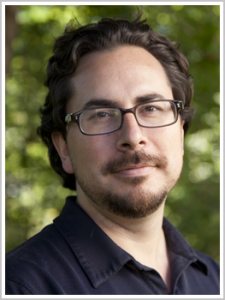
Jason B. Castro
Associate Professor of Neuroscience
Associations
Neuroscience
Pettengill Hall, Room G15
About
Assistant Professor PhD University of Pittsburgh, 2008
Education
BS & BA University of Rochester (2001)
Liberal Arts Diploma European College of Liberal Arts (ECLA) (2002)
PhD University of Pittsburgh (2008)
Research Interests
Professor Castro studies the sense of smell, focusing on 1) understanding the neural circuitry involved in odor processing, and 2) elucidating systematic relationships between chemical structures and odor percepts.
1. Neural circuitry of odor processing:
The olfactory system can detect and discriminate between a huge number of chemical stimuli. How does it do it, and what aspects of neural function facilitate these operations? To address these questions, Professor Castro studies the properties of circuits in the olfactory bulb – the first brain structure of the odor processing stream. Using electrical recording and imaging techniques, Prof. Castro studies how the intrinsic and synaptic properties of neurons contribute to their ability to sensitively and selectively respond to inputs. Current work is focusing on the heterogeneity of neural properties in the olfactory bulb to study whether it functions as a collection of ‘generalists’, or independent ‘specialists.’
2. Structure-Percept mapping:
One of the major challenges in olfactory research is to determine whether there is a systematic relationship between physiochemical features of molecules and their perceived smell. Despite a rich tradition of studying this question, it is still extremely difficult to predict odor qualities (like ‘woody’, ‘chemical’, or ‘fruity’) from knowledge of chemical structure alone. In collaboration with investigators at the University of Pittsburgh and Oak Ridge National Laboratories, Professor Castro is applying data-mining and dimensionality reduction techniques to large chemical and perceptual databases to derive principles for predicting odor quality from chemical structure. Future work will test these principles in experiments with human subjects.
Courses Taught
- NS/PY 160 Introduction to Neuroscience
- NS/PY 357 Computational Neuroscience
- NS/PY 363 Physiological Psychology
- NS/PY 364 Psychobiology of Smell
- PSYC 305 Animal Learning
- NRSC 462 Capstone Seminar on Computational Neuroscience
Selected Publications
Castro JB, Ramanathan A, and Chennubhotla C. Analysis of odor perceptual space using non-negative matrix factorization (submitted).
Castro JB, and Urban N. Tuft calcium spikes in mitral cells evoke glutamate release (submitted).
Castro JB, Kandler K. Changing tune in auditory cortex (2010). Nat Neurosci. 13(3):271-3
Castro JB, Urban NN. Subthreshold glutamate release from mitral cell dendrites (2009). J Neurosci. 29(21):7023-30.
Castro JB, Hovis KR, Urban NN. Recurrent dendrodendritic inhibition of accessory olfactory bulb mitral cells requires activation of group I metabotropic glutamate receptors (2007). J Neurosci. 27(21):5664-71.
Urban NN, Castro JB. Tuft calcium spikes in accessory olfactory bulb mitral cells (2005). J Neurosci. 25(20):5024-8.